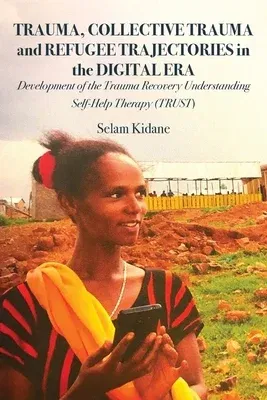Selam Kidane
(Author)Trauma, Collective Trauma and Refugee Trajectories in the Digital Era: Development of the Trauma Recovery Understanding Self-Help Therapy (TRUST)Paperback, 5 November 2021

Qty
1
Turbo
Ships in 2 - 3 days
In Stock
Free Delivery
Cash on Delivery
15 Days
Free Returns
Secure Checkout
Print Length
326 pages
Language
English
Publisher
Langaa RPCID
Date Published
5 Nov 2021
ISBN-10
995655250X
ISBN-13
9789956552504
Description
Product Details
Author:
Book Format:
Paperback
Country of Origin:
US
Date Published:
5 November 2021
Dimensions:
22.86 x
15.24 x
1.73 cm
ISBN-10:
995655250X
ISBN-13:
9789956552504
Language:
English
Pages:
326
Publisher:
Weight:
435.45 gm

